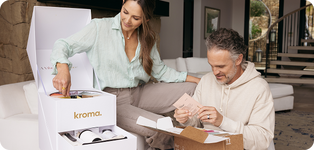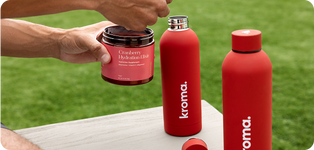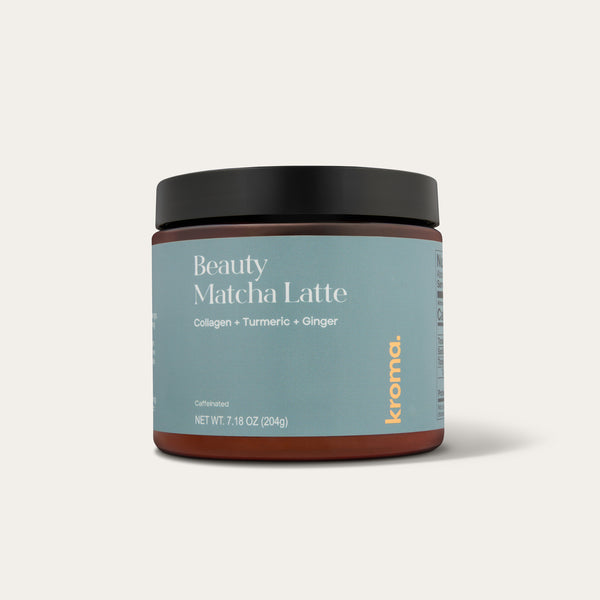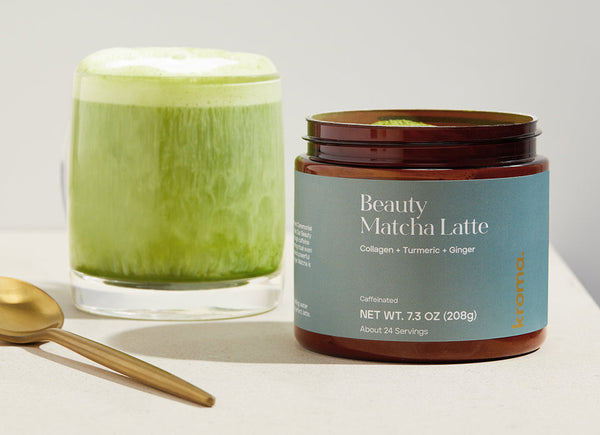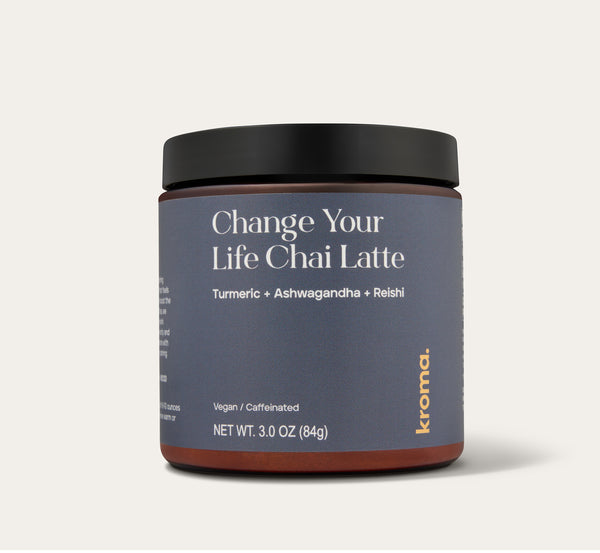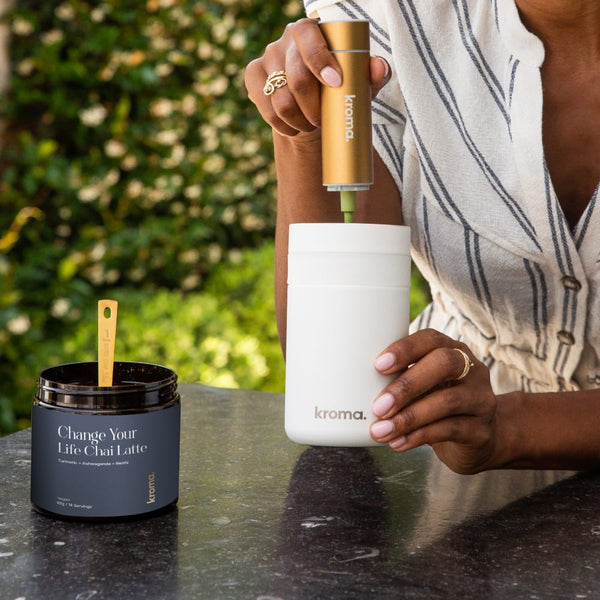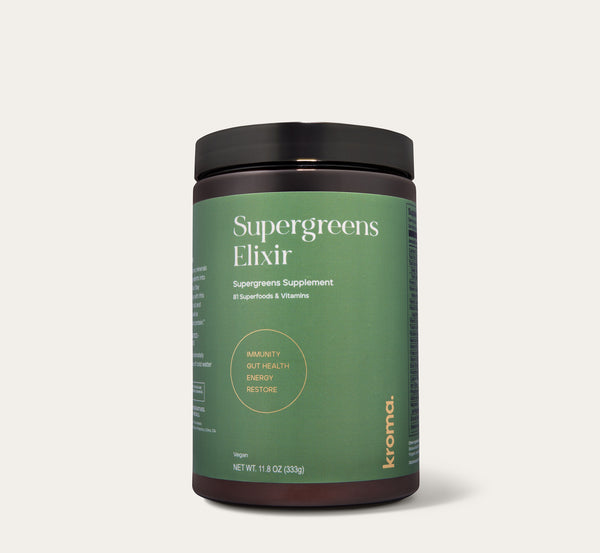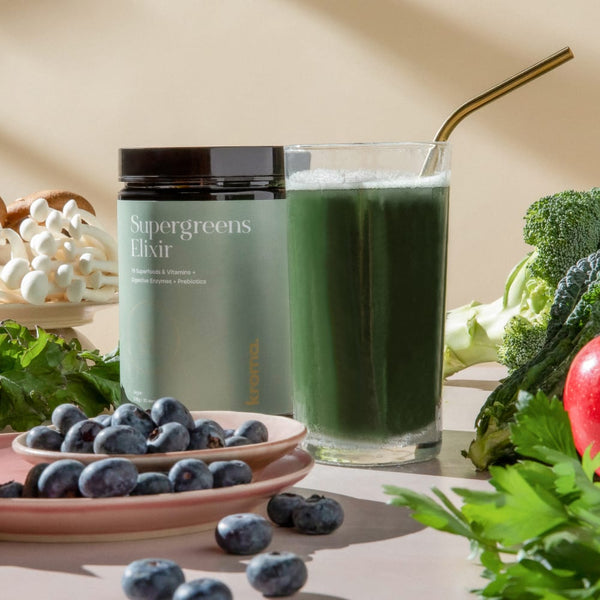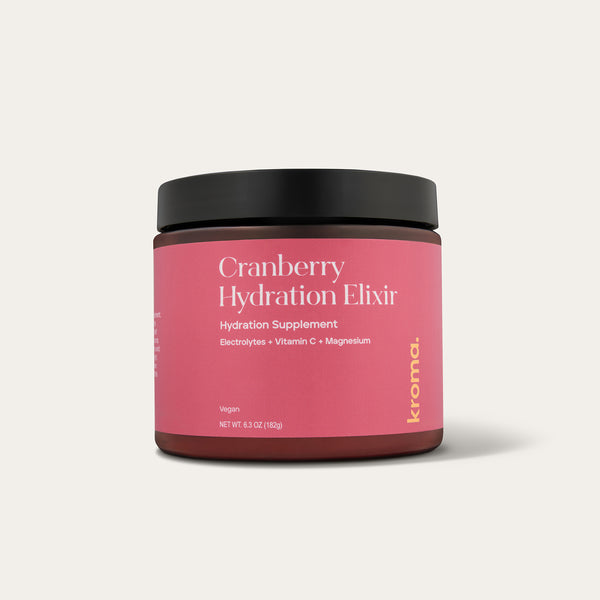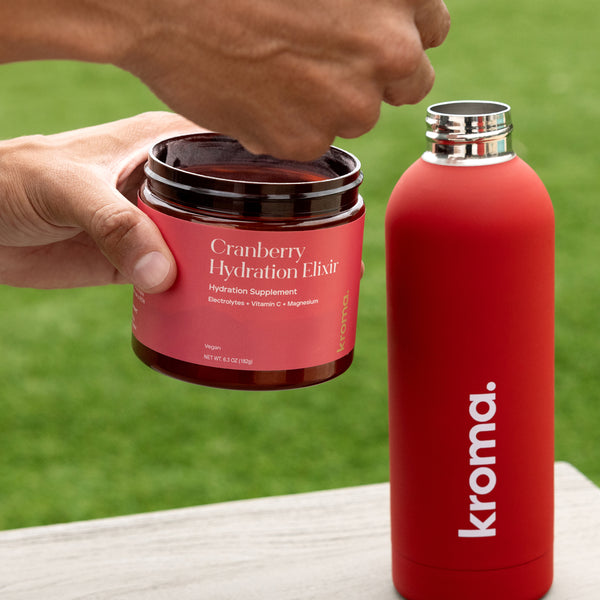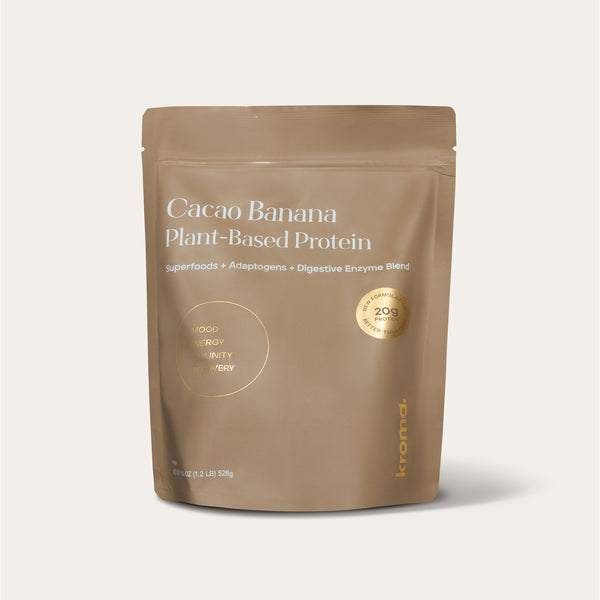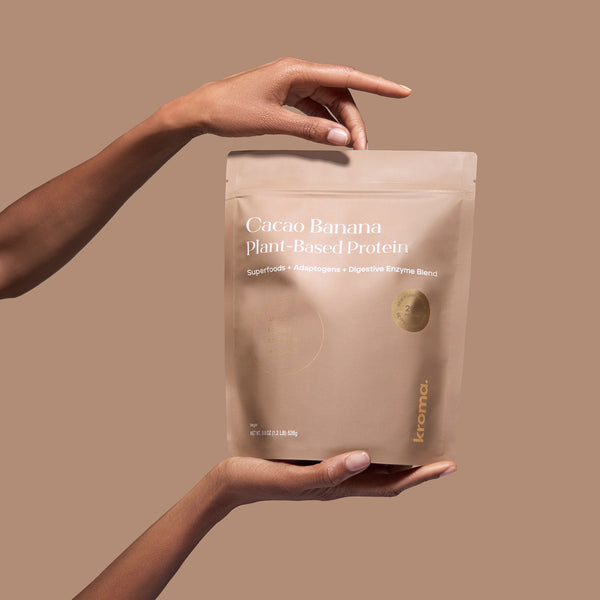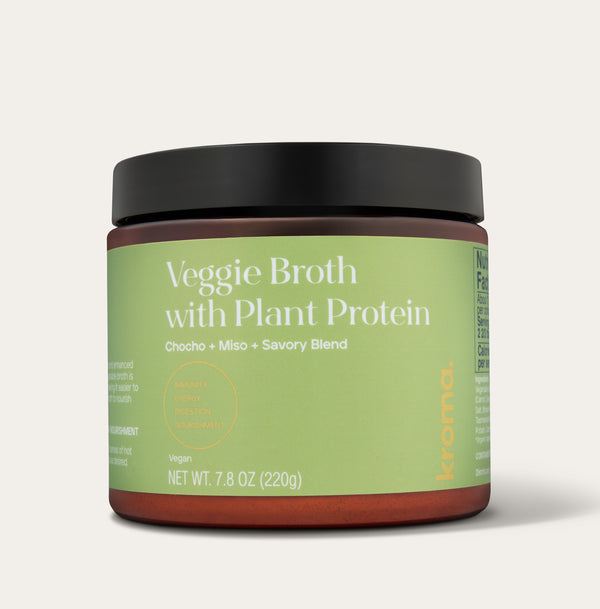Aging is a natural part of life, but is there a way to age gracefully and experience longevity? There are many ways to live a healthy life well into your older years through positive lifestyle habits. One way is to look at your nutrition and focus on health-forward foods.
Does it ever seem like no matter how hard you try, your hair just won't grow past a certain point? Maybe you’re in pursuit of long, luscious locks. Perhaps you’re trying to maintain hair fullness or address hair loss. If you are struggling with any of these, you're not alone.
There is a myriad of techniques and tips that you can incorporate to support your hair growth cycle, maintain hair fullness, and keep your hair shafts healthy. Keep reading for a concise guide on how to support your hair growth.
How Fast Does Hair Usually Grow?
Everybody's hair grows at a different speed, but the general consensus is that hair usually grows at an average of .5 inches (1.3 cm) per month or four to six inches per year (10 to 15 cm).
This is just an average, and everybody's hair grows at different speeds due to genetics, and emotional and environmental factors. The rate at which your hair grows remains fairly consistent until later on in life.
Does Hair Growth Slow With Age?
Let’s talk about hair follicles briefly. Hair follicles are essentially structures located in your skin (on your scalp, arms, and any place your body produces hair) that make and grow hair. With age, hair follicles are also impacted. As you age, so does your hair growth rate. Some follicles stop producing hair completely, and other follicles slow.
How Long Does It Take To Grow Five Inches of Hair?
The short answer: it depends. First, the hair on your head grows at a different rate than the hair on your arms or in your eyebrows. This means that your hair growth might look different not only at different parts of your life but at different parts of your body, too.
Hair growth is largely dependent on your body, including your genetics, diet, and other factors. The generally accepted range for hair growth per month is .5 inches (1.3 cm), resulting in a range of four to six inches ( 10 to 15 cm) per year. Again, the specific growth rate depends on your genetics, lifestyle, and hair care routine.
Lastly, as you age, your hair will grow at a slower pace. So as a teenager, your hair may have only taken a year to grow five inches (13 cm), but aging will likely slow that growth process.
What Factors Can Negatively Impact Hair Growth?
While genetics play a significant role in the rate of hair growth, there are several other factors that can negatively impact your hair.
From emotional to environmental factors, your hair is much more sensitive to your inner and outer world than you may realize. If you want to support your hair growth and maintain hair health, it’s critical that you build routines that nourish not only your hair but your entire body.
Stress

Do the words telogen effluvium stress you out? When you are stressed, every part of your body is likely to feel the effects — especially your hair. Telogen effluvium occurs when your hair is prematurely pushed into the resting stage, and this can result from stress.
When your hair moves into its resting stage, it’s more likely to fall out. The presence of telogen effluvium, or the telogen phase, typically results in moderate to significant hair loss.
Age
Many beautiful things come with age, but hair loss is usually one of the more difficult aspects of aging. Remember the resting stage discussed previously? That naturally occurs as your body gets older and your hair’s life cycle matures.
Just as you can't reverse the aging process, your hair age cannot be undone. The resting stage often includes hair thinning, hair loss, and a reduction in hair growth.
Low-Quality Hair Products
Washing your hair with products that contain dozens of harmful chemicals is unlikely to support your hair growth. Low-quality hair products are oftentimes made with damaging ingredients, like sulfates and artificial fragrances, that can not only impact your hair health but can potentially slow hair growth.
Poor Diet

Your hair is attached to the rest of your body, and as such, it is impacted by the foods you consume. If your diet consists of processed foods and high-sugar beverages, your hair is likely to feel the impact of those choices.
Just as chemicals in hair products can impact your hair topically, consuming highly processed and chemical-filled foods can harm your hair from the inside. Prioritize a food and wellness routine that centers on vegetables, whole grains, fruits, and protein.
The Beauty Matcha Latte from Kroma Wellness is a hair health booster packed with matcha and other superfood ingredients.
Lack of Exercise

Every part of your body is interconnected, so it should come as no surprise that your level of physical activity impacts your hair. But how, exactly, is your gym routine affecting your hair growth?
When you exercise, your body circulates more blood. A study revealed that blood vessels play a critical role in promoting thicker hair growth. More exercise yields more blood circulation throughout your body, which, in turn, can promote hair growth. A little bit of healthy caffeine can help fuel your workouts; Kroma’s Change Your Life Chai Tea contains about 25% of the caffeine in a full cup of coffee – just enough to rev you up without giving you a jittery feeling.
That said, too much exercise can damage your hair, too. Long-distance exercising, like ultra-marathons or extreme endurance sports, can produce excess testosterone, which might play a role in hair loss. As with any exercise regime, finding balance and properly nourishing and hydrating your body before and after working out is key.
Damage From Bleach or Heat
If you've been to a salon before, then you likely know that bleach and heat can be damaging to hair growth. Bleaching strips the hair of color and vital nutrients and, if paired with heat treatments like a blow dryer, can weaken your hair significantly.
Next time you head to the salon, ask your hairstylist about safer options to maintain your hair health. If bleaching and heat treatment comprise the central components of your hair routine, find natural serums and protectant sprays to keep your hair nourished and hydrated. Coconut oil or castor oil treatments may help moisturize your hair.
How Much Hair Loss Is Normal?
The telogen phase is a stage that your hair enters when follicles begin to prematurely enter their resting period. This can be accompanied by mild to significant hair loss, usually as a result of an increase in stress. Whether it be childbirth, a significant life event, or a medical issue, your hair is sensitive to the changes your body experiences.
However, on its own, daily hair loss is a regular occurrence for humans and usually doesn’t pose significant issues. If you notice clumps of hair falling out or significant hair in your brush or comb, it may be a sign that your hair is shedding abnormally.
Why Does Stress Contribute to Hair Loss?
Between 24/7 technology, 9-to-5 workdays, and busy family lives, stress can easily find its way into the many facets of our lives. Stress impacts your physical body, and as such, your hair often feels the effects of stress most acutely.
But why are hair and stress so interconnected? As previously mentioned, stress encourages hair to enter the telogen stage prematurely, which means your hair follicles are entering their resting stage. When in the resting stage, hair production and growth slow, which can result in thinner, slower-growing hair.
Incorporating mindfulness practices, reducing caffeine intake, and prioritizing sleep and exercise can help reduce stress significantly. A more calming daily existence is likely to yield happier hair follicles that are less likely to enter the telogen stage prematurely.
How Long Does It Take for Hair To Regrow After Stress-Induced Hair Loss?
Generally, stress-induced hair loss begins to grow back within three to six months after the telogen phase has concluded. Again, since everybody is different, your hair growth journey might look different than the average.
How Do Genetics Affect Hair Growth?
Genetics also play a role in hair growth and can impact not only your hair color and texture but also your hair’s growth rate, thickness, and your likelihood of hair loss. The environmental and emotional factors that impact hair growth are compounded by your body’s extant genetic factors.
Take a look at the people in your family and see what their hair growth and loss journeys have been. It might give you a good idea about how yours might unfold.
How Can I Make My Hair Grow Faster?
There are several lifestyle changes that you can incorporate to support and maintain healthy hair growth. From a balanced diet to receiving hair follicle microneedling from a healthcare provider, committing to hair growth is committing to a healthful lifestyle.
Eat Plenty of Fruits and Vegetables

Whole fruits and vegetables contain important nutrients, vitamins, and fiber which can support hair growth. Opt for whole fruits instead of sugar-loaded juices, and select vegetables that are high in fiber and rich in vitamins, like leafy greens.
Looking for a tasty way to get more greens in your diet? Kroma’s Supergreens Elixir has just what you need. Full of superfood fruits and veggies, adaptogens, and antioxidants, Supergreens Elixir has 75 key vitamins, minerals, and whole-food ingredients to start your day right.
Maintain Proper Nutrition
An overall balanced diet is key for maintaining a life rooted in wellness. Omega-3 fatty acids, which can be found in salmon, tuna, and walnuts, can support hair growth and fullness. Building a diet around fruits, vegetables, proteins, and healthy fats can contribute to increased energy and cognitive functioning. This, in turn, can support your hair health.
Stay Hydrated

Hydration is one of the most critical components to keep your body thriving. When you are dehydrated, your cells cannot function at optimal levels, meaning various bodily processes may be stunted — including hair growth.
Prioritize hydration throughout the day with a reusable bottle or a hydration reminder app that will support you in getting the recommended amount of water.
Try Supplements
Supplements can offer additional support for healthier hair. Consult with a registered dietician, and find supplements with whole, non-artificial ingredients to encourage hair growth. And remember, important vitamins and nutrients should come from whole foods first, and supplements second.
Manage and Reduce Your Stress
Stress can feel like it’s everywhere, but learning to manage and reduce stressors can significantly impact your hair health and overall well-being. Reducing screen time, prioritizing self-care, exercising, and incorporating mindful practices can help you form a ritual rooted in wellness to prevent hair shedding and breakage.
Can I Prevent Age-Related Hair Loss?
While you cannot permanently prevent age-related hair loss, there are a number of actions you can take to attempt to repair existing hair damage and strengthen hair as you age.
Reducing how frequently you shampoo your hair and ensuring that your diet is rich in proteins and essential fats, oils, and fibers, are two ways to be proactive about age-related hair loss.
At What Age Does Hair Growth Slow or Stop?
While there is no magic number to denote when your hair growth is going to stop or slow, your hair growth continues to slow as you age. Menopause, significant illnesses, and a poor diet can all contribute to slowing your hair growth.
Does Weather Affect Hair Growth?
While the weather generally does not affect hair growth, different climates, humidity, and washing routines can have impacts on your hair health.
Cold vs. Warm Weather
If you live in a colder climate, your hair might be more exposed to continuous hat-wearing and significant changes between the cold outdoors and hot indoors. Hat-wearing can make you more prone to split ends due to friction, though it can help protect your hair from dry conditions. The colder months of the year entail dry, windy weather that can sap moisture out of your hair.
These environmental stressors can make your hair brittle. If you are in a colder climate, prioritize moisture and less frequent shampooing throughout the week in addition to reducing heat styling.
The Bottom Line
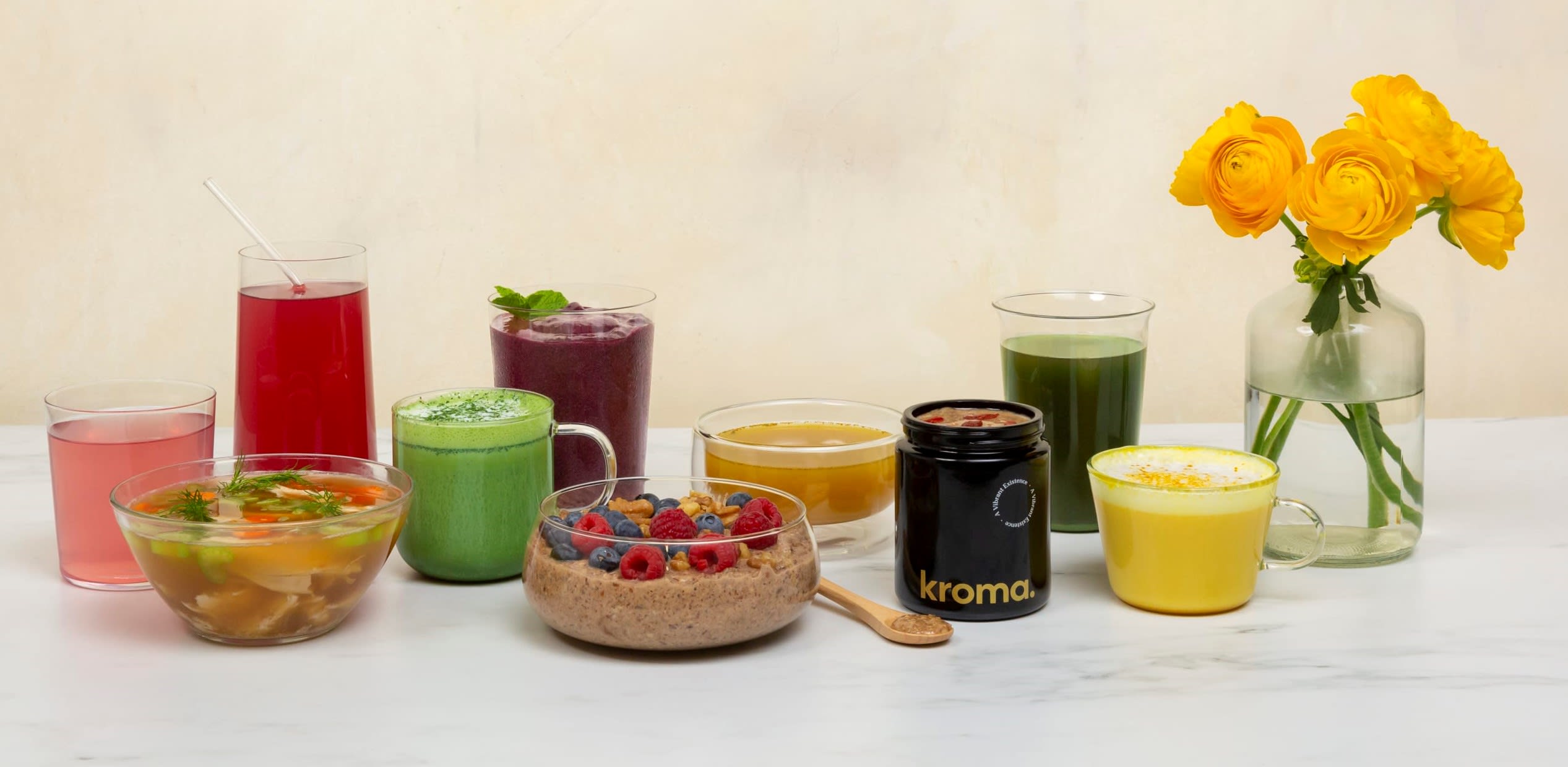

What you put into your body and the type of lifestyle you lead can impact your health — and your hair’s health, too. Your diet, stress levels, exercise routine, and hairstyling routine are all important factors that contribute to your hair health.
That said, making minor changes in these areas of life can help you support both your hair health and your overall well-being. Kroma Daily Essentials can help you fuel your body so that it has everything it needs to support optimal hair growth conditions.
While much of hair growth is based on genetics, adopting healthier hair routines can help you support and maintain full-bodied and fast-growing hair as you age.
Kroma Wellness believes in the power of nutritious food, which is why we aim to bring you healthy, superfoods in convenient packaging, so you can feed your body what it needs at any time.
